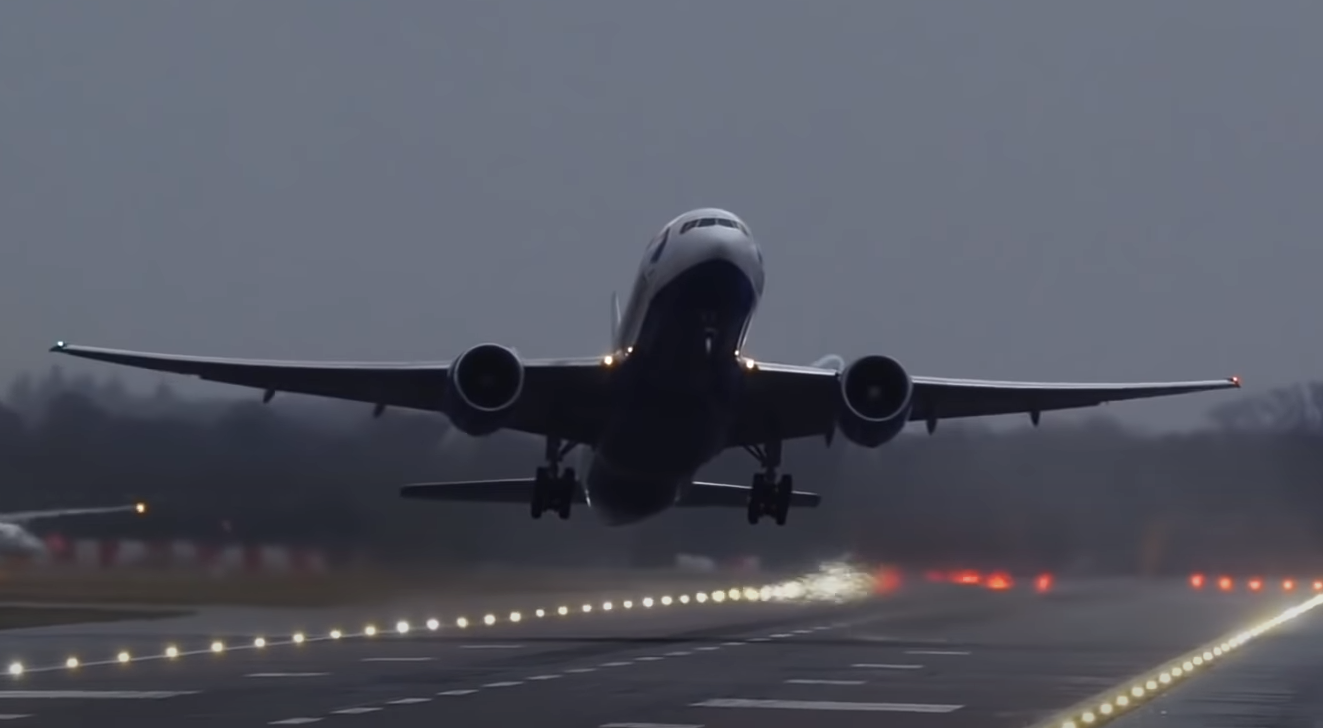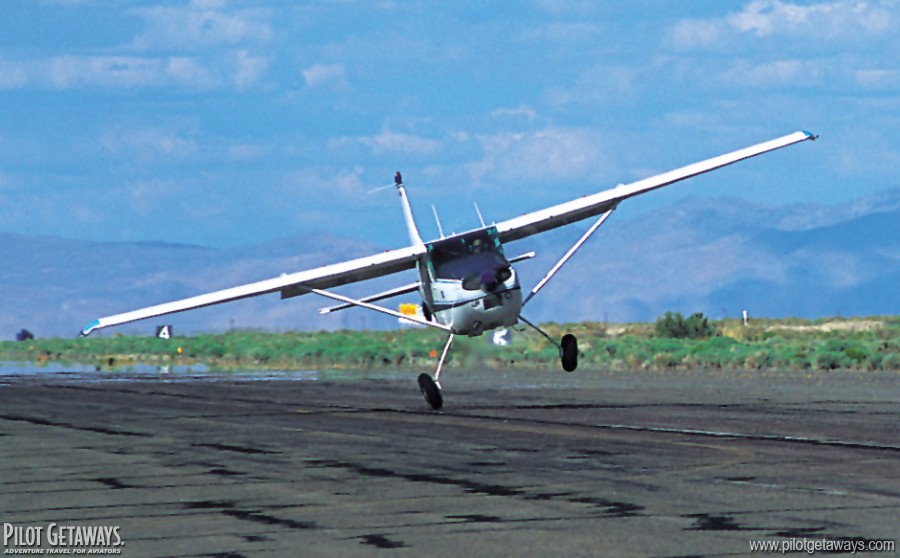
Extreme crosswind landings at Gatwick Airport Airline Ratings
A crosswind landing refers to the technique used by pilots to land an aircraft when there are horizontal winds blowing perpendicular, or somewhat perpendicular, to the aircraft's intended flight path. During a crosswind landing, the wind is not aligned with the runway, creating a challenging scenario for the pilot in command.

Top 10 Airplane Crosswind Landings! TOPVM
Crosswind is the wind that blows across the runway perpendicular to the direction of an aircraft's movement. Crosswinds can affect the stability and control of an airplane during takeoff and landing, as they can cause the aircraft to drift sideways or yaw into the wind.

Dramatic video of perfect crosswind landing by TUI pilots Bristol Airport, Strong Wind, Sideways
In aviation, a crosswind landing is a landing maneuver in which a significant component of the prevailing wind is perpendicular to the runway center line. Significance Aircraft in flight are subject to the direction of the winds in which the aircraft is operating.

Watch These 18 Intense Crosswind Landings Boldmethod
Because an aircraft points in the prevailing wind direction during flight (called the weathercock effect), the aircraft will point either left or right of the centerline during the approach and landing, despite flying in the runway direction. Why Is a Crosswind an Issue? Daily Free Pilot Study Tips @pilotinstituteairplanes

The Best CROSSWIND Landings and TakeOffs! YouTube
Landing an airplane in a crosswind is a sequence of diminished flight control authority as airspeed decreases, requiring increased aileron and rudder deflection during the approach, touchdown, rollout, and taxi. Photo by Mike Fizer. In a crosswind landing, I prefer using the sideslip method, commonly known as the wing-low technique.

The Most Astonishing Plane Crosswind Landings Ever!!! YouTube
When it comes to crosswind landings, there are a couple methods you can use: crab, and wing-low. And there are advantages and disadvantages to both. They're really the same method as you touch down, but the differences come down to when you start your slip. Flying The Crab Method

Crosswind landing compilation Boeing & Airbus YouTube
33K 7.9M views 5 years ago Today a severe storm crossed germany and caused lots of trouble for the pilots which had to land an airplane in western germany. Storm "Friederike" was the strongest.

¿Qué es un aterrizaje con viento cruzado? Jet News
FlightInsight 154K subscribers Subscribe Subscribed 95K views 1 year ago The most difficult task in learning to fly is mastering the crosswind landing. Managing the aileron, rudder, elevator,.

Crosswind Landings at Düsseldorf. Boeing 777, A330, A320, B737, MD82 (HD) YouTube
April 20, 2021 in Flight Training Performing a crosswind landing is one of a new pilot's biggest fears. It's the phase when the majority of aviation accidents occur. And one-third of all accidents in the landing phase occur in gusty or very windy conditions. It's not surprising why crosswind landings can be very intimidating.

EXTREME CROSSWIND landings compilation ll 40+ minutes YouTube
0:00 / 10:02 TOP 10 CROSSWIND LANDINGS of 2019 - AIRBUS A380, BOEING 747, GO AROUND. (4K) Cargospotter 1.1M subscribers Subscribe Subscribed 4.1M views 4 years ago I was able to film a few.

A320 very heavy landing in crosswind YouTube
These landings are difficult, mainly because the wind tries to blow the aircraft away from the runway approach path, and landing so landing techniques need to overcome this. There are basically three crosswind landing techniques: the crab method, the wing-low method, and the de-crab method, the last of which is basically a combination of the.

UNBELIEVABLE CROSSWIND LANDINGS during a STORM Compilation Boeing vs... Boeing, Aircraft
When it comes to crosswind landings, there are two primary methods you can use: crab and wing-low. There are advantages and disadvantages to both. They're really the same method as you touch down, but the difference comes down to when you start your transition to the wing-low slip. Flying the Crab Method

Crosswind Operations Pilot Getaways
As the aircraft approaches the runway, the pilot uses the rudder to point the aircraft's nose into the wind, counteracting the crosswind and maintaining the desired flight path. This means the aircraft will be angled slightly sideways, or 'crabbing' as it comes in for landing. This is the most visible part of a crosswind landing.

VIDEO Extreme crosswind landings recorded on August, 3rd at Amsterdam AIRLIVE
Figure 3. Crosswind approach and landing. To correct for strong crosswind, the slip into the wind is increased by lowering the upwind wing as needed. As a consequence, this results in a greater tendency of the airplane to turn. Since turning is not desired, considerable opposite rudder is applied to keep the airplane's longitudinal axis.

Crosswind landing B777,B767,B737,Embraer170,CRJ200,DHC8,SAAB340B at OSAKA International Airport
The difficult crosswind sideways landing of a HiSky aircraft on a cargo flight to Dublin, Ireland, on Thursday, December 21, 2023, which landed in gusty winds was captured on video by DubjetAviation and the footage went viral around the world, being shared by aviation enthusiasts all across the internet. The HiSky aircraft landed during high.

Scary Plane Crosswind Landings Compilation YouTube
The three crosswind landing techniques are the crab method, the sideslip (also know as the wing-low method) and the de-crab method (also known as the combination method). The crab method allows that pilot easily track the centerline, but requires a great deal of skill just prior to touchdown. The sideslip is easier than the crab method when it.